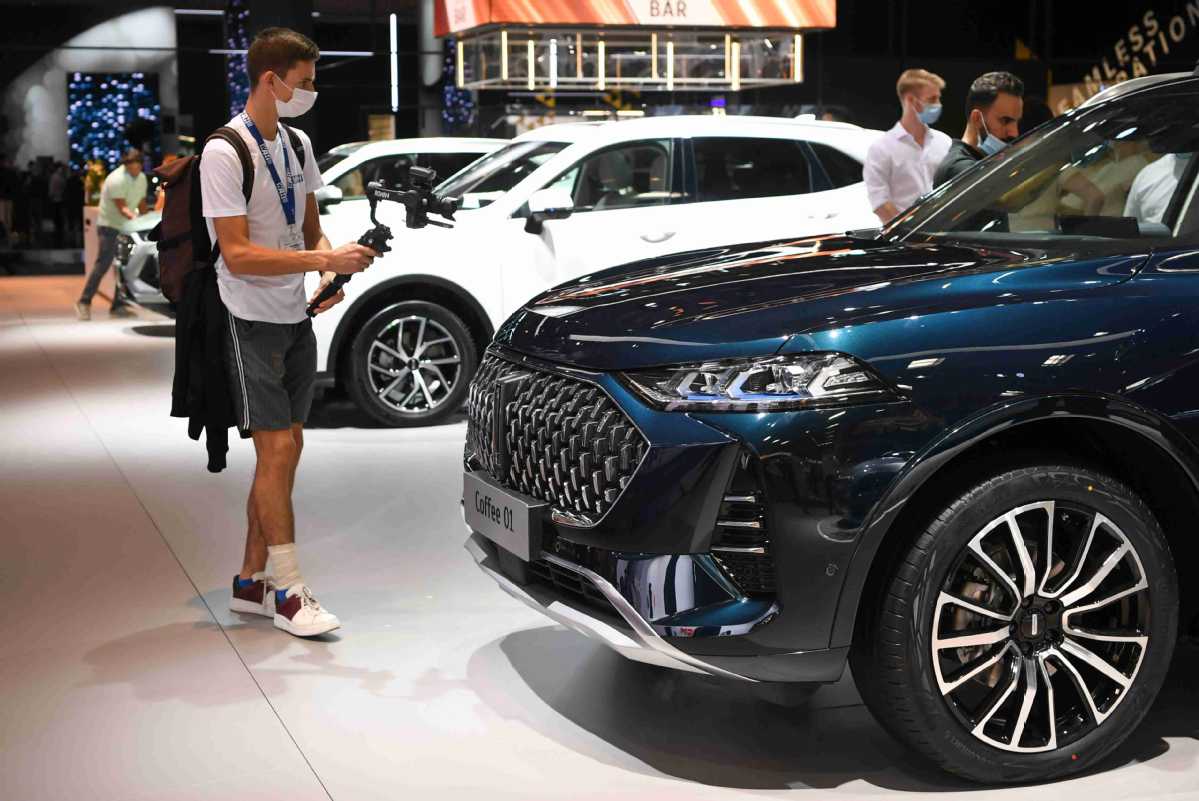Domestic carmakers expanding overseas

Major Chinese carmakers are stepping up to explore overseas markets as globalization is deemed a prerequisite to become internationally competitive marques.
Great Wall Motors opened its European headquarters last week in Munich, Germany, paving the way for its models to hit the country from 2022.
China's largest SUV and pickup maker presented a plug-in hybrid SUV from its Wey brand and a full-electric model from its Ora brand at the Munich auto show in September.
"Chinese carmakers now have the courage and ability to take European brands head-on," said the carmaker in a statement.
Great Wall Motors also plans to open brand experience centers in Munich and Berlin in 2022 as part of its plan to build a "lifestyle ecosystem" for European customers.
"The launch in Europe is an important milestone for Great Wall Motors," said Qiao Xianghua, CEO of the carmaker's European operations. "We have ambitious goals for this market as well."
Geely, another major private carmaker in China, revealed a plan for its premium brand Lynk & Co to make inroads into the Asia-Pacific region earlier this month.
The first stop for Lynk & Co is Kuwait. It is to introduce an SUV in partnership with Kuwaiti company Al Zayani.
The carmaker said there are 495 cars per 1,000 people in Kuwait and local car buyers value quality and cutting-edge technology, so there is huge potential for brands like Lynk& Co.
Lynk& Co said it will soon enter other countries in the region including the United Arab Emirates, Israel, Saudi Arabia and Oman.
The Asia-Pacific campaign is the latest effort of Lynk & Co's globalization, following its entry into European countries in late 2020.
Its first model to enter the European market was the Lynk & Co 01 SUV, with total deliveries exceeding 10,000 units so far.
The carmaker said it has built four showrooms in Europe and plans to open another three in 2022.
Lynk & Co said it is also planning to export vehicles to such countries as Russia, Australia and New Zealand.
Wuling is to sell its popular electric minicars in Indonesia from 2022. The first model to arrive in the Southeast Asian nation will be one built on its GSEV platform for global markets, the company said on Wednesday.
The carmaker rose to fame in the EV sector last year because of its two-seater Hongguang Mini EV, which once dethroned Tesla's Model 3 as the world's bestselling electric vehicle.
The model and other GSEV-based vehicles have been successful in China, with total deliveries exceeding 650,000 units so far, according to company statistics.
Wuling showcased two GSEV-based models at the Gaikindo Indonesia International Auto Show earlier this month.
"It represents our commitment to support the Indonesian government's program to accelerate vehicle electrification," said Han Dehong, vice-president of Wuling's operations in Indonesia, in an interview with local media.
Xu Haidong, vice-chief engineer of the China Association of Automobile Manufacturers, said China's vehicle exports are expected to grow in the coming years.
"Big auto companies have big shares in international markets. Compared with them, we still have a long way to go," said Xu.
Statistics from CAAM show that carmakers in China exported 1.59 million vehicles in the first 10 months this year, which is less than 8 percent of total vehicle production in the country.

